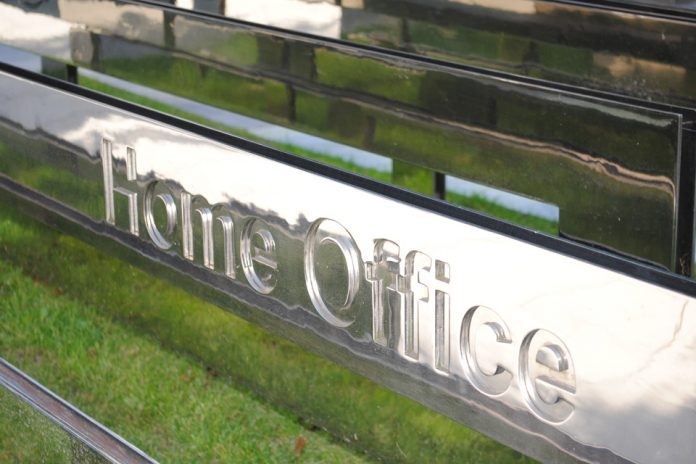New legislation which underpins the work of MI5, police and other public authorities tackling serious crimes has today (Thursday 24 September) been introduced to Parliament.
Undercover operatives and agents play a crucial role in preventing and safeguarding victims from the most serious crimes, including terrorism and child sexual abuse. In order to gain the trust of those under investigation, there are occasions where they need to participate in criminality themselves. This is a longstanding capability which remains critical for national security.
The Covert Human Intelligence Sources (CHIS) Bill provides a clear and consistent statutory basis for a limited number of public authorities to continue to authorise participation in criminality, in carefully managed circumstances.
It provides certainty to public authorities already using this critical capability and confirms a common set of safeguards which they are bound by, including compliance with human rights.
Security Minister James Brokenshire said:
We owe a huge debt of gratitude to the men and women who put themselves in often dangerous situations in order to protect our national security and keep the public safe.
In the course of this vital work, it may be necessary for agents to participate in criminal activity in order to gain the trust of those under investigation.
This is a critical capability and is subject to robust, independent oversight. It is important that those with a responsibility to protect the public can continue this work, knowing that they are on a sound legal footing.
DG MI5, Ken McCallum said:
Throughout MI5’s history, human agents have played a critical role in helping protect the UK from terrorist threats and hostile activity by states.
Since March 2017, MI5 and Counter Terror Police have together thwarted 27 terror attacks. Without the contribution of human agents, be in no doubt, many of these attacks would not have been prevented.
In some situations, it is both necessary and proportionate to authorise agents to be involved in some managed level of criminal activity, in order to win or maintain the trust of those intent on harming the UK and gain the critical information needed to save lives.
This power, carefully used and independently overseen, is vital so we can continue to meet our duty to keep the public safe.
National Police Chiefs’ Council CHIS lead, DAC Graham McNulty, said:
We welcome the creation of an express power, which will ensure policing can continue to deploy this vital tactic against the most harmful offenders.
From terrorists to violent gangs and organised criminals who seek to harm the most vulnerable in society, this bill will help us disrupt their activities and keep our communities safe.
NCA Director General Lynne Owens said:
The NCA leads the UK’s fight to cut serious and organised crime, focusing on the most determined criminals who dominate communities through violence linked to drugs and firearms supply, who abuse the vulnerable and who threaten the UK’s economic security and institutions. Law enforcement has long used CHIS to help thwart the most serious criminal threats to our nation and its partners.
Only when it is absolutely necessary and proportionate, will we authorise our CHIS to be involved in a limited form of criminal activity. This is done with great care and scrutiny. Without this capability we will not be able to bring to justice criminals and their groups who conspire to harm the UK and its citizens.
We welcome this new legislation which puts this crucial capability on a firm foundation.
Chief Executive of the Medicines and Healthcare Regulation Authority, June Raine said:
Patient safety is our first priority. Our Enforcement team works closely with the police in tackling pharmaceutical-based crime, seizing both the products that pose a risk to the public and the proceeds of the crime.
These powers clarify and strengthen our ability to uncover links to serious organised crime, when deemed necessary and proportionate.
Robust independent oversight is provided by the Investigatory Powers Commissioner, Sir Brian Leveson, who carries out regular inspections, publishing a public annual report on the findings.
This capability is supported by the Courts, with the Investigatory Powers Tribunal, in their recent supportive judgment on the use of CHIS participation in criminal conduct, noting that: “the policy….has been exercised with scrupulous care by the Security Service so as to discharge its essential functions in protecting national security, whilst giving proper regard to the human rights of persons who may be affected by the activities of agents”.
The Investigatory Powers Commissioner has also commented in his annual report that, with regards to MI5, “in every case that we examined….the activity authorised was proportionate to the anticipated operational benefits”.
The public authorities that will be authorised under the Bill are:
- UKIC
- Police
- NCA
- Home Office (immigration and borders functions)
- HMRC
- HM Forces and their police
- Ministry of Justice (HMPPS)
- Competition and Markets Authority
- Environment Agency
- Financial Conduct Authority
- Food Standards Agency
- Gambling Commission
- Medicines and Healthcare Regulation Authority
- Serious Fraud Office







